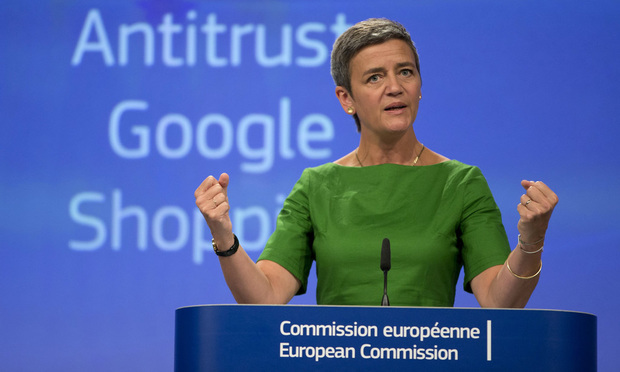The European Commission has fined Google €1.49 billion ($1.7 billion) for abusing its dominant position in the market for online advertising—the third billion-dollar penalty it has imposed on the tech giant for hindering competition.
Announcing the fine, Margrethe Vestager, the EU’s antitrust czar, said that Google had violated antitrust rules by shutting its competitors out of the market for online search advertising by imposing restrictions on companies that used its search bar on their websites in Europe. Google had unfairly required websites that used its search bar to feature ads from Google’s advertising services over those of rivals.

 European Union Commissioner for Competition Margrethe Vestager. (AP Photo/Virginia Mayo)
European Union Commissioner for Competition Margrethe Vestager. (AP Photo/Virginia Mayo)







